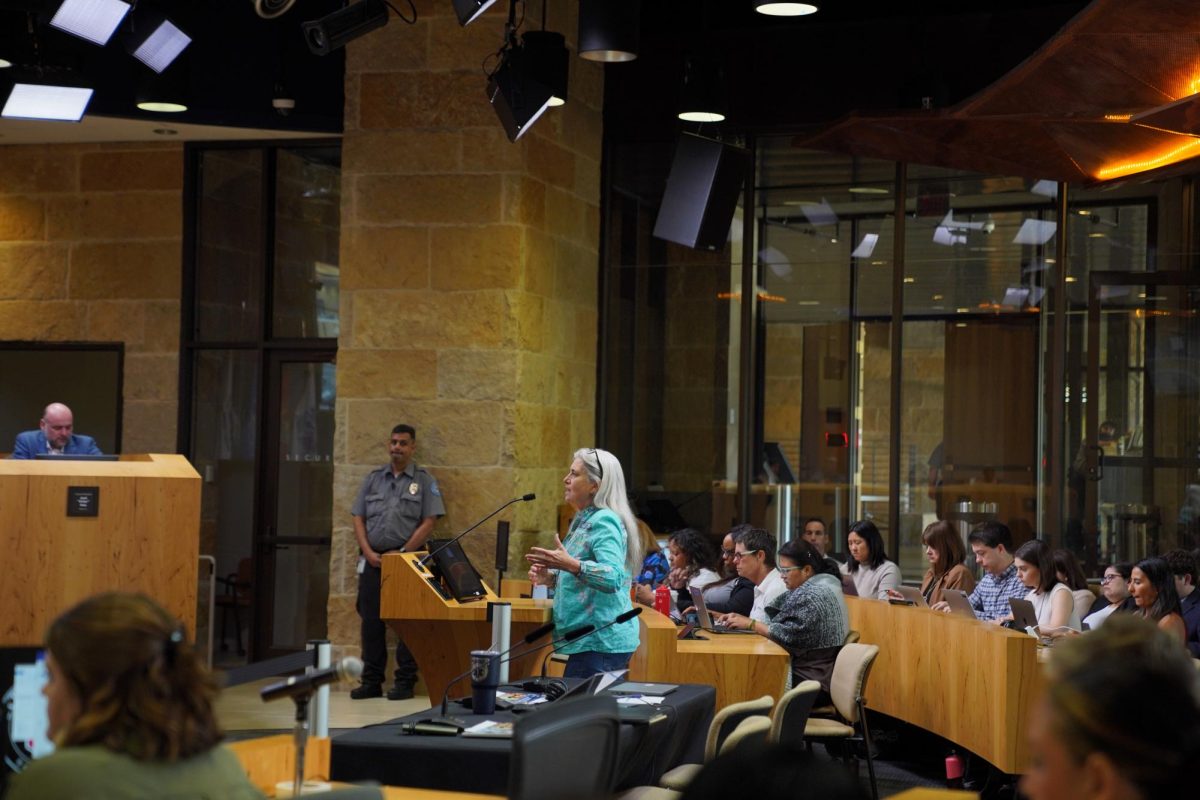Increasing housing availability and reducing zoning regulations are steps Texas policymakers can take to increase housing affordability, panelists said at a nationwide pro-housing conference on Feb. 26.
Previously hosted in Colorado and Oregon, this year’s YIMBYtown conference took place in the University’s Thompson Conference Center and focused on affordable housing in Texas. The YIMBY movement advocates for the development of more housing in growing cities to increase affordability. YIMBY stands for “Yes In My Backyard,” referencing the Not In My Backyard movement in which residents oppose increased affordable housing availability in their communities.
The key to housing affordability is increasing housing supply, said Panelist Judge Glock, the director of research at the Manhattan Institute. He said he appreciates the passing of House Bill 14 in 2023, which made the process of obtaining a permit easier for developers. Still, he said the city does not invest in as many new housing developments as they should. He said reforming property taxes, impact fees and ensuring the community feels the economic benefits of new developments could encourage the city to buy into more new developments.
Glock said Texas’ population increased by about 9 million people since 2000, and he wants Texas to continue to grow and eventually become the most populated state in the country. However, he said he recognizes that land use and affordability can block that path.
As moderator Nicole Nosek, the chair of the board at Texans for Reasonable Solutions, asked the next question, audience member Sol Praxis interrupted Nosek, shouting “Why should we believe that any of these people care about affordable housing in Austin?”
Other protesters around the room spoke in agreement and handed out flyers describing Nosek as a billionaire who fights for regulations that will benefit developers more than residents, like the Home Options for Middle-Income Empowerment, or HOME initiative.
The protestors were members of Community Powered ATX, an organization against the YIMBY movement and dedicated to preventing the gentrification of Austin. Praxis said increasing housing supply without ensuring the new supply is equitable and affordable can displace longtime residents and even students.
“You can’t legalize housing and criminalize human beings without housing,” Praxis said, referencing Glock’s advocacy against homeless encampments.
Gentrification is caused by a city’s increased attraction — not the increase in housing supply, said Brennan Griffin, senior deputy director at Texas Appleseed, a data-driven policy analysis organization. He said new developments can mitigate gentrification because they will ensure there is enough supply for every resident to remain housed.
Texas State Representative Cody Vasut said he noticed employees driving large distances to work because they cannot afford to live in the area where they work. He said affordability impacts the ability of people to find housing, which leads to more people moving to the suburbs even if the infrastructure cannot sustain new residents. He said this can eventually push businesses out of Texas.
Vasut said passing laws removing restrictions on single-family zoning is essential to fixing the affordability crisis. Austin recently passed the first phase of the HOME initiative, the first of planned updates to the city’s Land Development Code. The initiative changes the minimum lot size in single-family zoning, aiming to increase housing supply by inviting current residents to build up to three homes on an applicable lot.
“Having affordable housing not only is a civil rights issue, it’s not only a pro-business issue (and a) property-rights issue, but it’s also a balancing-the-existing-way-of-life-in-Texas issue,” Vasut said. “That’s why I’m very interested in seeing what we can do to address this issue.”















